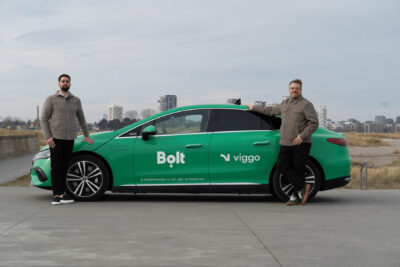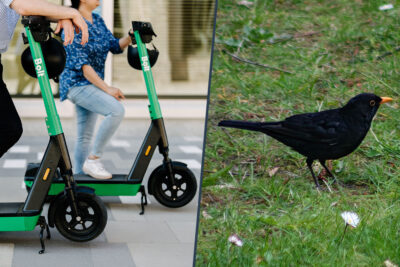Bolt set to expand with €150m investment
The Estonian mobility company Bolt Technology is going to invest more than 150 million euros this year to expand its e-scooter and e-bike business. By the end of this year, Bolt aims to expand its fleet to more than 230,000 micromobility vehicles in over 250 cities across Europe.
+ + Kindly see our update below + +
At the end of 2021, Bolt was present 170 cities and active in 20 countries, growing from being active in 60 cities in 15 countries only twelve months ago. The Estonian company explains that in March 2022, bookings for e-bikes and e-scooters were 500 per cent higher than in the same month last year. While some of this might be explained by Corona-related restrictions being much greater in March 2021, the jump in attention is still impressive.
“Our mission is to build cities for people, not cars, by providing more affordable and environmentally friendly shared mobility alternatives for all city trips,” says Dimitri Pivovarov, Vice President Rentals at Bolt Technology. “Scooters and e-bikes are a perfect alternative to cars for shorter city centre trips, so it’s encouraging to see customer demand for our scooters as we continue to expand across Europe.”
Bolt is aiming to operate its micromobility fleets in more than 250 cities across Europe by the end of 2022. Already prepared for this growth, the company has obtained licences to operate scooters in a lot of new cities including Oslo (Norway), Rijeka (Croatia), Turin (Italy) and Gothenburg (Sweden) this year.
Electric kick-scooters have come under fire for a number of reasons, but significantly with the argument that kick-scooters often replace cycling and walking rather car trips. On the eve of its expansion into Oslo, Bolt recently reported the findings of its research conducted in partnership with Norway’s Institute of Transport Economics (Transportøkonomisk institutt, TØI) which found that in-app encouragement resulted in up to 60% increase in users across ten European cities shifting from ride-hailing to scooters for shorter trips. While Bolt points out that kick-scooters improve air quality, and many cities are still using fossil-fuelled ride-hailing cars, our readers will know that Norway particularly has fewer polluting cars than electric cars on the road. This is where micromobility still has an extra advantage: city space. A kick-scooter takes far less road space than a ride-hailing vehicle, and thus alleviates city congestion.
Earlier in April, Bolt unveiled its ‘long-range’ electric kick-scooter model, the Bolt 5. The vehicle is expected to roll out 20,000 units in European cities in the coming months.
Update 03 June 2022:
The Estonian mobility company Bolt Technology has now announced the first model offensive of the above-mentioned fleet expansion. Over the next six months, 16,000 e-bikes are to be placed in more than 30 European cities.
Bolt has so far deployed e-bikes in Madrid, Stockholm, Düsseldorf, Cologne, Oslo and Krakow and now operates electric kick-scooter and e-bike fleets in 200 cities in Europe, up from 170 cities at the beginning of the year.
Bolt is reportedly investing 150 million euros to expand its business to bring its fleet to more than 230,000 electric scooters and e-bikes in over 250 cities across Europe by the end of this year.
Info via email





0 Comments